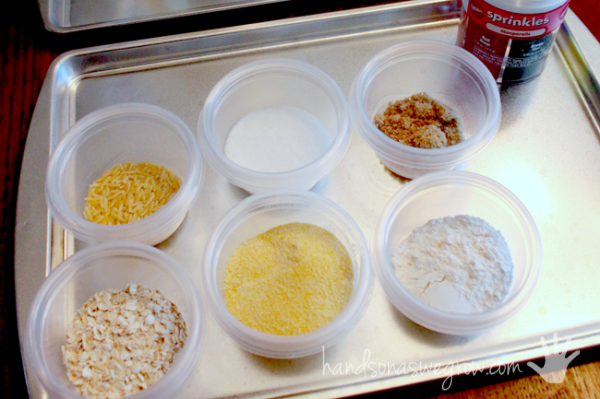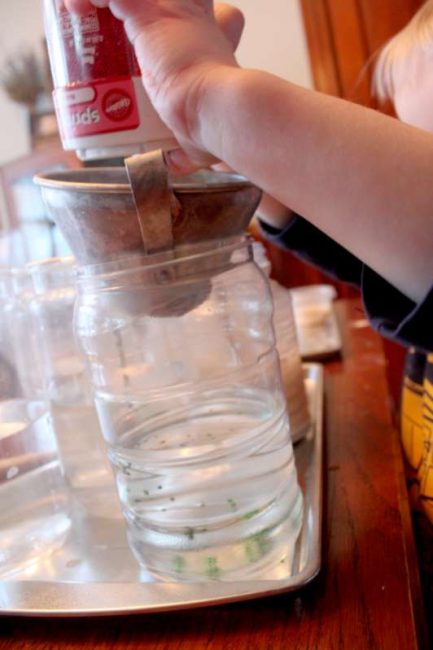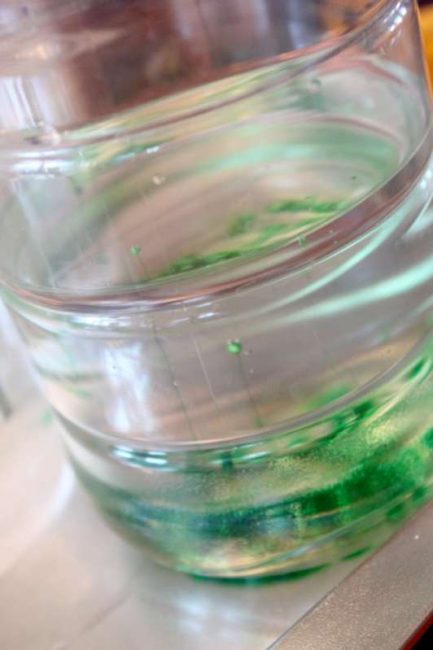Click here to read Easy Preschool Science Experiment to Learn What Dissolves in Water on Hands On As We Grow®
This is a fun experiment for preschoolers to predict and observe what dissolves in water. You’ll both have fun making predictions!
I’ve mentioned before that Henry’s really been into experiments lately. He’s created his own experiments as well as begs for others to do quite often.
Like I mentioned in the how to become a hands-on parent post, I go to Pinterest for a lot of my ideas.
On a whim when Henry asked for an experiment to do, I checked out my ‘All Things Play’ board. This post popped up: Does it Dissolve? from The Picky Apple.
Find out what dissolves in water!
So we set up a dissolve experiment station with stuff from the pantry.
I found a few things in my pantry that might dissolve, along with a few that I knew wouldn’t dissolve:
- Flour
- Sugar
- Brown Sugar
- Orzo Noodles
- Cornmeal
- Oatmeal
- Colored Sprinkles
I started out setting out two pitchers of water. One would be for things that Henry thought might dissolve and the other was for things he didn’t think would “disappear.”
Making predictions is a great critical thinking skill for preschoolers to start developing!
But right off the bat, Henry predicted wrong. We realized how hard it was going to be to tell if the next one dissolved or not.
So, instead, I filled up seven different plastic jars with water. One pitcher for each pantry staple.
I gave Henry a funnel and a couple wooden spoons. And let Henry have at his experiment.
He predicted before pouring in each one if he thought it would dissolve or not. Then we observed to see what happened after he stirred for a bit.
He was wrong a lot. And I’m so glad it didn’t upset him.
He did really like when something changed the color of the water, though.
Some things changed the color or made it foggy, but they still didn’t dissolve.
The sprinkles were, of course, the most fun to watch.
They changed the color of the water, but the sprinkles didn’t dissolve.
I had a hard time choosing what to use for our experiment. I’m curious what other items we’d have to ‘test’ out.






0 Commentaires